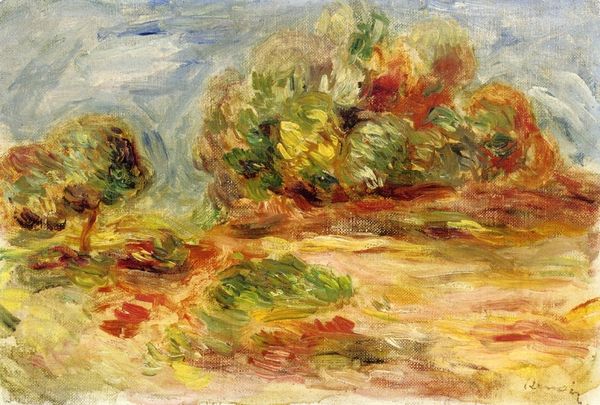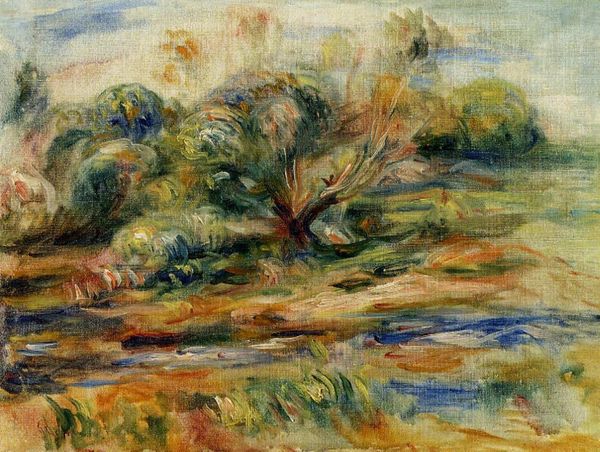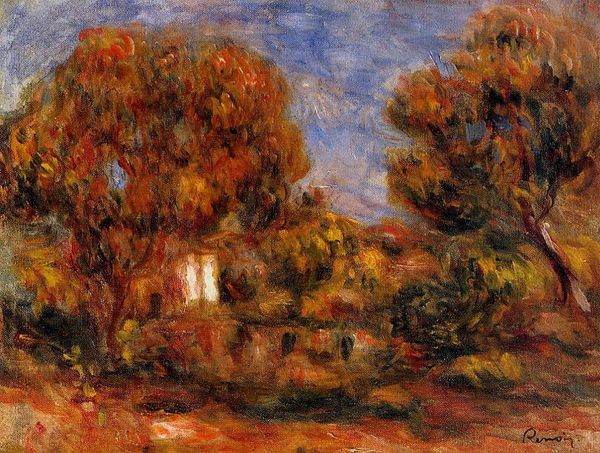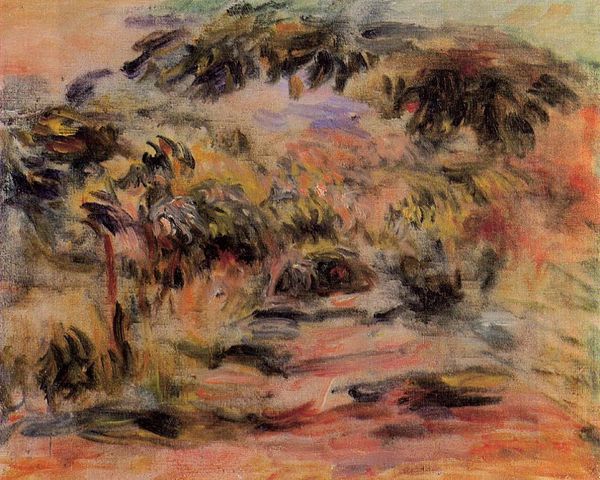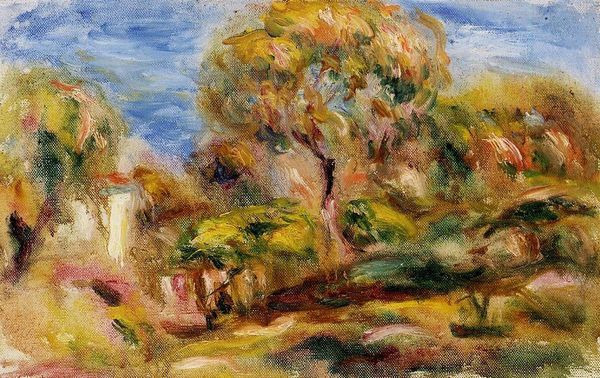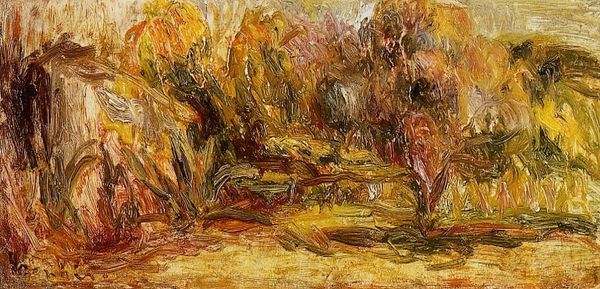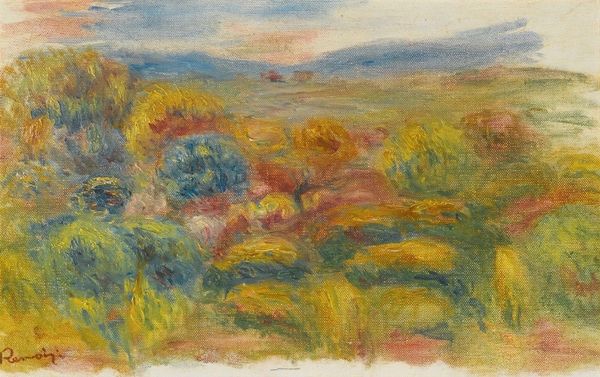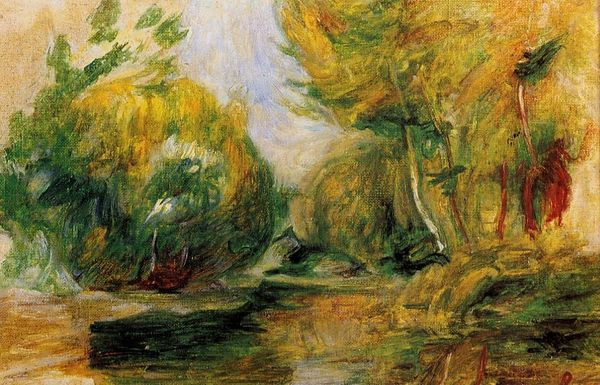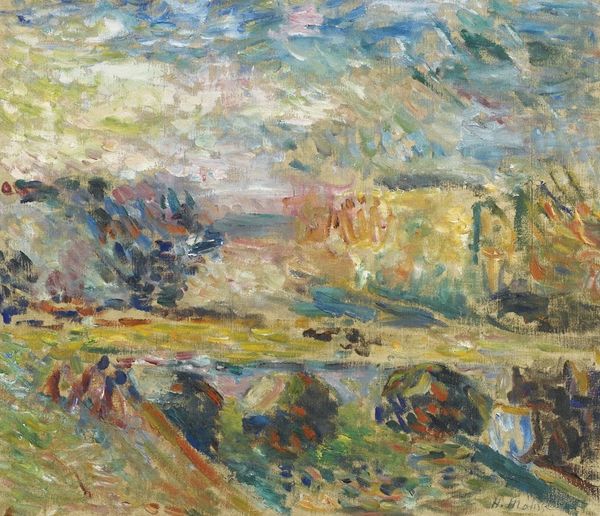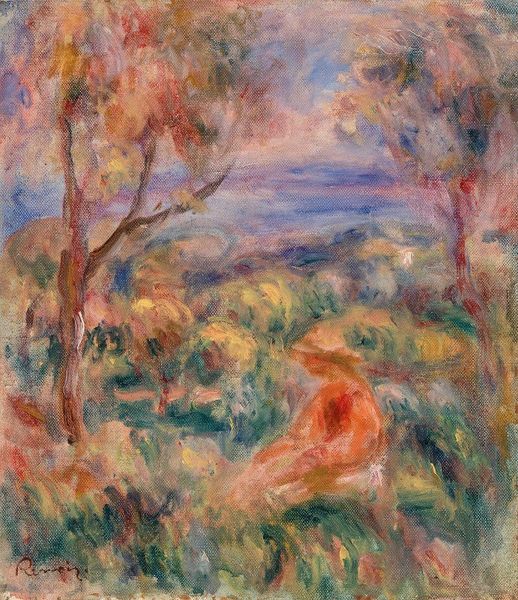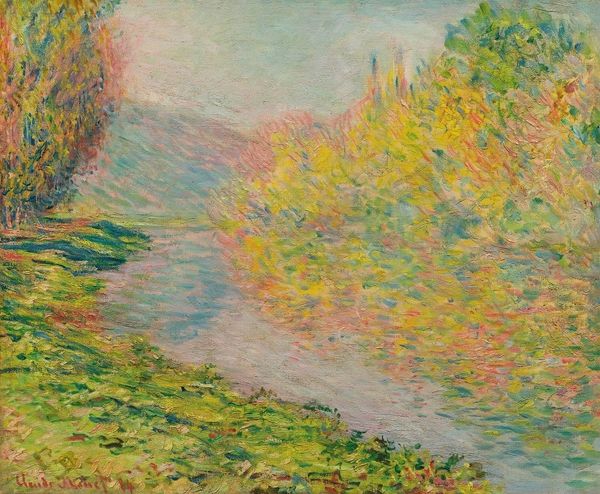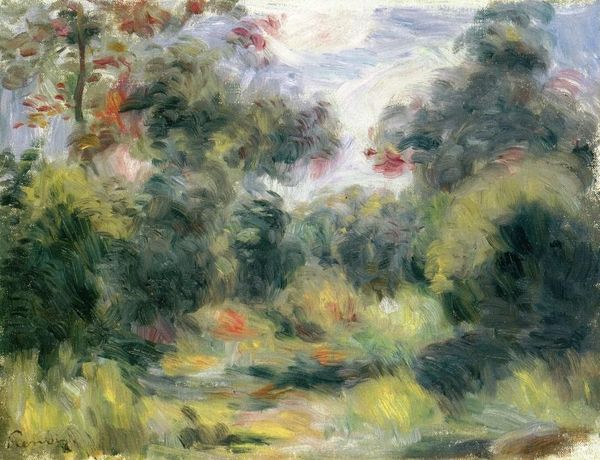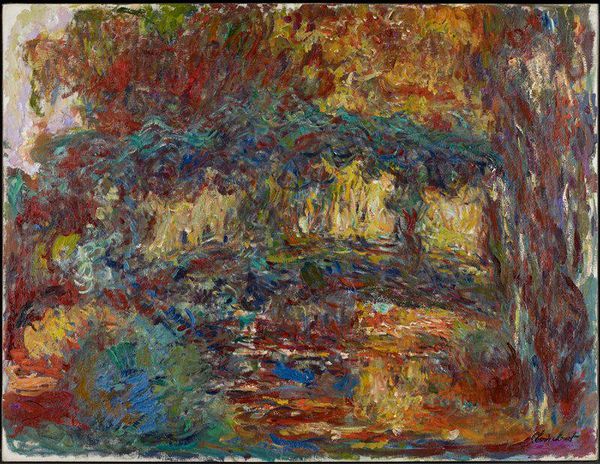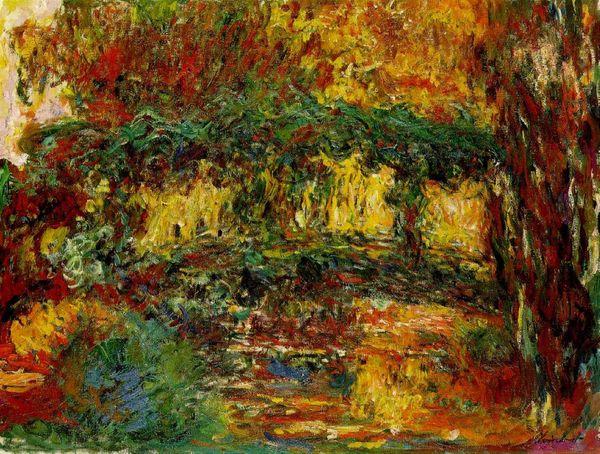
Copyright: Public domain
Curator: Before us hangs Renoir’s "Landscape," created in 1919 using oil on canvas. Editor: It's… overwhelmingly warm. Almost feverish. I see frantic brushstrokes, blending earth tones with these unexpected pops of almost neon color. Curator: Renoir painted this toward the end of his life, when his arthritis severely limited his mobility. Knowing this informs our understanding of how the materials are used here: the brushstrokes aren't just stylistic, they might represent physical struggle. It gives new meaning to the Impressionist focus on capturing fleeting moments and sensory experiences. Editor: Fascinating! The limited palette and almost claustrophobic composition make me think about memory. How a landscape morphs into something intensely personal and emotionally charged over time. Those rapid brushstrokes feel almost like visual echoes. Curator: Exactly! And beyond the personal, this technique speaks to a societal shift, away from academic painting and towards a focus on individual expression. Mass production allowed artists easier access to paint and canvas and therefore the freedom to experiment. "Plein-air" becomes both artistic practice, and performative statement. Editor: You know, I see a return to older mythologies. The dabs of light, for example, bring to mind nymphs hiding amongst trees and dryads. Perhaps the artist’s mind retreats into nature to reclaim youth, health, an Arcadia lost. Curator: I like your point about reclaiming. As one of his last works, Renoir is clearly re-engaging with, or perhaps even dismantling, the classical landscape tradition he was trained in, a tradition built on privilege. Editor: It certainly makes me consider my own relationship to nature and to history, how landscapes we see, landscapes we imagine, echo through our cultural consciousness. Curator: For me, the beauty of this landscape lies not in its representational accuracy, but rather the tension between its production constraints, its reception, and the way that tension collapses so beautifully onto the canvas. Editor: I agree. "Landscape" by Renoir gives us not just an image of nature, but reveals memory's and culture's ability to reimagine, and renew nature itself.
Comments
No comments
Be the first to comment and join the conversation on the ultimate creative platform.
